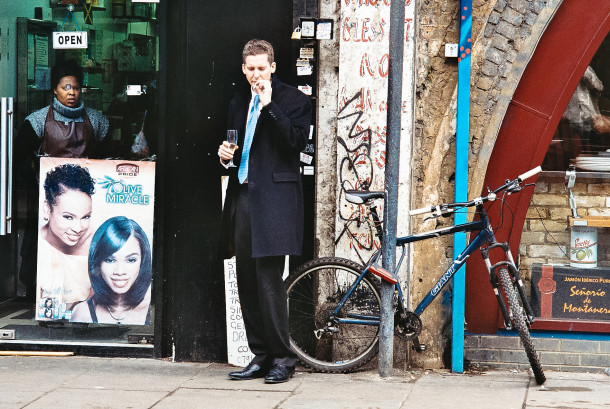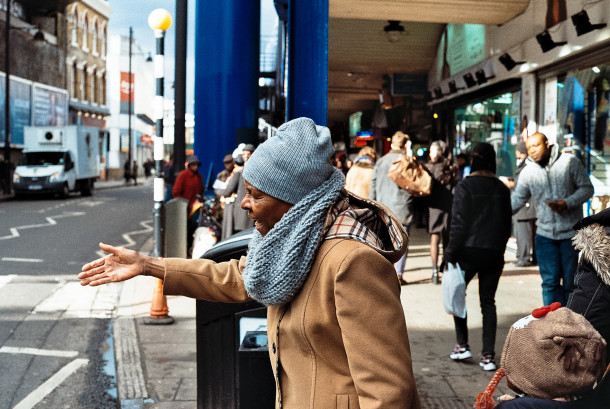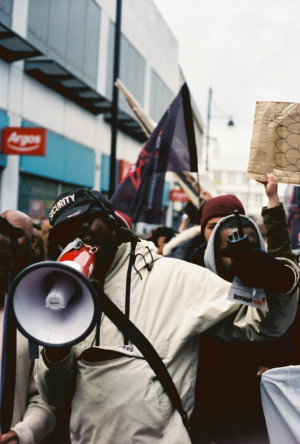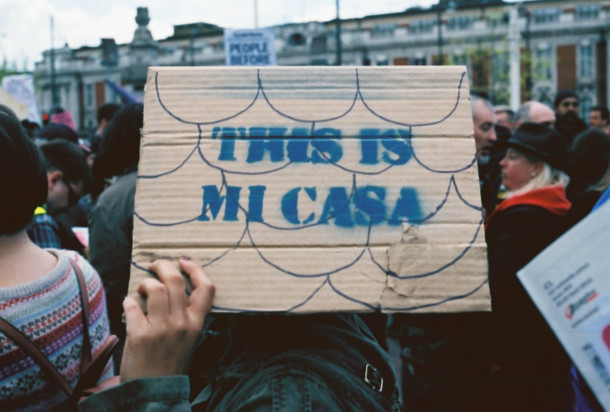A Saltoun Road-based group of creatives, the Changing Face Collective, are currently working on a new verbatim play, responding to Brixton’s changing face as a community. Arts Editor Ruth Waters caught up with Lucy Curtis, director of the play.

Who’s in the collective and how long have you been working together?
Our core members are theatre-makers me (Lucy Curtis) and Eve Mazza, photographer Dashti Jahfar, illustrator Gaurab Thakali, and short film producer Rohina Cameron-Perera.
The collective first came together in response to the 2011 [London] Riots. Using our different specialisms, including photography and filmmaking, we documented events as they unfolded. We found we were interested in the same things and we learned about each other’s different skills through teaching each other.

Why did you decide to work on this particular subject and why now?
One of our collaborators, who is part of Lambeth’s housing activist group, has experienced eviction. We have witnessed home evictions on Stockwell Park Estate and Loughborough Park, having lived in neighbouring blocks and find it shocking that their boarded-up homes remain empty a year after the last eviction, in a capital city with a housing crisis.

When we all learned of Network Rail’s plan to evict our convenience stores on Brixton Station Road, Atlantic Road and Pope’s Road, we realised that Brixton was on the verge of changing forever. This was when we decided to create the piece.
How have you been selecting local people to interview to form the script?
Verbatim theatre [a form of documentary theatre where the script is constructed from the precise words spoken by people interviewed] is a lengthy process; the initial research and development phase is key to gathering all the information you need.
We have interviewed over 100 local people who are affected by the evictions, as well as organisations. We want a balanced documentation, and have interviewed people who are pro-regeneration, including developers, and new people moving into the area.
What have been the most interesting stories you’ve uncovered about Brixton from local people?
It was interesting to sit down with a Lambeth archivist and hear about the different waves of classes and people who have lived in Brixton over a 200-year period. Brixton has gone through so many historic, social and economic changes.
We have been very moved by people’s individual stories – people facing the loss of a family business, or their homes and community. People feel as if they are being robbed of their achievements, livelihoods, and friendships. As one interviewee said: “Do they want us to become beggars?”

What’s your opinion as a collective about the changes happening in Brixton at the moment?
We question the logic of destroying social housing […] why demolish an estate like Cressingham Gardens when it’s more expensive and far less sustainable to do so? We believe it’s vital for people and estates to come together to fight eviction.
We wonder, at what point did perceptions change about what we consider to be valuable and acceptable -does something have worth if it doesn’t have an economic value?
Most importantly, we believe that people should be in charge of their own lives. It’s about everybody making a decision about how we all want to live together.
Changing Face will be performed at Brixton East in August and then tour to other parts of London, Bristol and Edinburgh.
The collective are searching for Brixton-based actors and musicians to join the cast or contribute to the performance of Changing Face. Acting experience is not essential, but they are looking for committed individuals who are passionate about the topic. Head to their website to find out how to get involved.






